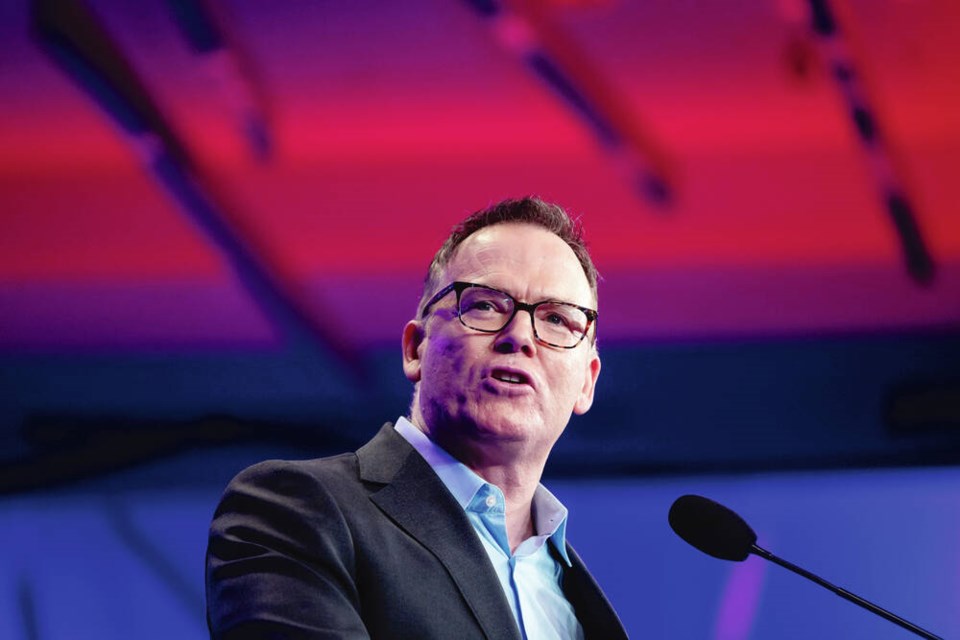Saturday’s byelection in Vancouver-Quilchena offers Kevin Falcon an opportunity to take up a seat in the legislature.
Falcon, the newly elected leader of the provincial Liberal party, has spent nine years away from politics. He was elected MLA for Surrey-Cloverdale in 2001, and held his seat until 2013 before resigning to spend more time with his young family.
During that period he held several cabinet offices, including minister of transportation, minister of health and minister of finance. Christy Clark appointed him deputy premier after she defeated him for the party leadership in 2011.
Falcon is favoured to win the byelection. Vancouver-Quilchena is considered one of the safest Liberal seats in the province.
The riding was formerly held by two previous Liberal leaders, Gordon Campbell and Andrew Wilkinson. It would be a disaster for his party if Falcon loses.
The more intriguing question is what happens if he wins. His opponents have attempted to portray him as an unapologetic fiscal conservative.
Out of office, Falcon joined an investment banking firm, Anthem Capital, as executive vice-president. That might appear to solidify his reputation as more of a money manager than a people person.
Adding to that perception, he projected something of a hard edge in office.
If the byelection campaign tells us anything, it is that the NDP will try to turn Falcon’s tough-guy image against him when sa国际传媒 goes to the polls in 2024.
While two years is a long time in politics, it’s not too early to wonder if this is a winning strategy. There are several causes for doubt.
The main case against him is that as finance minister, Falcon came down hard on health care and social services. And relatively speaking, he did.
In his 2012 budget, the only one he presented before leaving politics, the Health Ministry’s budget was held to a 3.8 per cent increase, while social services got a three per cent lift. Both were sufficient to keep up with inflation and population growth, but not enough to meet rising demand for these services.
By comparison, in the recent NDP budget the Health Ministry received a 5.4 per cent increase, and social services a 9.3 per cent raise. So yes, Falcon was definitely tougher.
However, he can reply that his budget projected surpluses over the following two years, while the recent NDP budget forecast deficits to the horizon.
Arguably this is dangerous ground for the NDP to fight an election on, because it brings to mind the party’s string of deficits in the 1990s.
Falcon’s own strategy is to attack the NDP over lack of affordable housing and the overdose crisis. He could add to that the depleted state of family medicine across the province. These challenges show no sign of abating.
It might come down to this: As things stand today, on the heels of a devastating COVID epidemic, with the social and economic distress it caused, the NDP can justify setting balanced budgets aside and going the extra mile.
sa国际传媒 leads all provinces in popular support for its COVID-fighting tactics. So long as this campaign remains top of mind with voters, there is probably ground to be made in portraying Falcon as an overly zealous penny-pincher.
But if two years from now, COVID has receded yet housing is still unaffordable and health care remains in crisis, different priorities might emerge. This is the danger in fighting the campaign on Falcon’s past record.
Elections tend to be won or lost by the party in power, not by the opposition. Come 2024 the NDP will have been in office for seven years, if their minority partnership with the Green Party is counted.
The defence they mount of their record in power will determine the outcome, not a look backward to what happened 10 years ago.
If, as expected, Falcon wins comfortably on Saturday, John Horgan’s NDP will need a more positive vision to campaign on.



